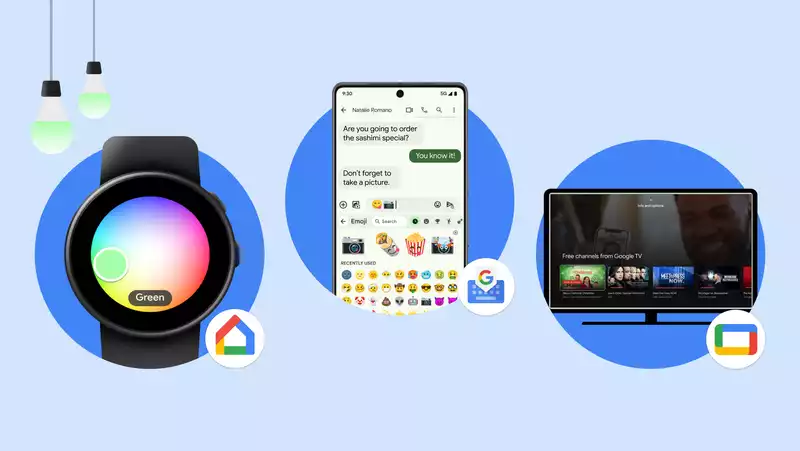Google has been pushing the Google Messages app to promote RCS as an alternative messaging protocol to SMS and MMS. And the advantages of better encryption and quality-of-life features seem to have won over the skeptics, with Google reporting that the number of active users of RCS-enabled messages has now reached 1 billion.
To celebrate, Google is adding more than six new features to Messages, offering new ways to communicate with family and friends. Meanwhile, additional Android updates announced today (November 30) include accessibility features and new WearOS features.
Let's take a look at some of the highlights of the new Google Messages and Android features from these updates.
The first new feature, which Google has named "PhotoMoji," allows users to turn images into reactions with the help of their phone's AI. Select a photo stored on the device and tap the image to turn it into a photo-moji, which can then be placed as a reaction in a text conversation just like a regular emoji. A separate folder is provided to store the photo moji you have created, so you can access them as many times as you like.
iPhone users will recognize this feature as one that Apple added with iOS 17 earlier this year. Similar to Photo Moji, iOS 17's Visual Look Up feature can be used to take an image from a photo and convert it into a sticker that can be used in the Messages app.
As part of the Android update, a new Emoji Kitchen sticker combination allows you to use Gboard to mix and match different emojis that you can share with friends.
Voice Moods is another feature coming to Google Messages that aims to bring a visual element to voice messages. When recording a voice message, you can choose from nine different emotions and add visual effects and color coding to match your mood.
In addition, animated emojis are now part of the Google Messages mix; in the example shown by Google, the heart emoji sparkles to visually express how you feel about the message.
Another interesting feature added to Google Messages are screen effects. These are activated when a particular message is sent. For example, typing "It's snowing" will cause an animation of snow to appear on the phone screen of the person sending the message. According to Google, there are more than 15 phrases that trigger different animated screen effects, the discovery of which is like a game people play with each other.
If that seems somewhat over-the-top, there are more low-key ways to personalize a conversation. The new custom bubble feature allows users to set the color and background of the bubble for each conversation. Multiple colors can be set for each chat, and you are no longer limited to just blue or green.
In addition to the new Google Messages feature, several new features have been added to Android, with accessibility improvements garnering the most attention: with the TalkBack feature, Google is leveraging AI to provide descriptions of images, allowing people with vision impairments to see photos and graphic content.
Live captioning, on the other hand, will support more languages and assist with phone-like tasks. In addition, people will be able to reply to calls by simply texting a response, which will then be read aloud.
Most of the other Android changes announced today affect WearOS devices: you will be able to control more smart homes from your WearOS watch, and from the watch screen you can set Google Home's status from "Home" to "Away Google has also added the ability to launch Assistant Routines from the watch via voice command, and the Assistant At a Glance shortcut on the watch dial allows for quick access to weather forecasts, event reminders, and more. access to weather forecasts, event reminders, etc.
The new Google Chat feature is currently in beta, but is available today.
The new Google Chat feature is currently in beta, but is available today, while other features will be rolled out over the next few weeks.










Comments